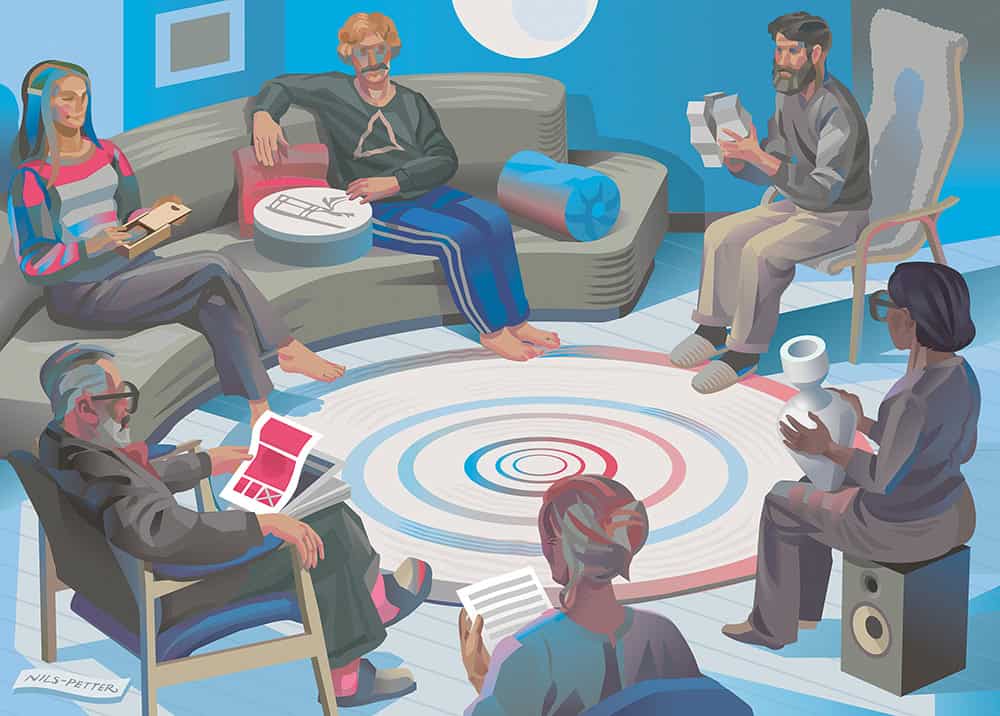My first months as a PhD student were characterized by the same type of comment, “Your project will change a lot over time”. The comment came from well-meaning researchers who didn’t have any deeper understanding of my project. “That’s actually a sign that you are doing something right.” they explained. “If the project doesn’t change, it’s a sign that you’re not developing as a researcher.”
This comment put a fear and an expectation in me that all the research I was doing was part of my dissertation project 1.0 – the substandard version of the dissertation that could not pass. I was waiting for the day when I would receive scathing criticism from a superior explaining why dissertation 1.0 was worthless. Then I would have to alter and correct, change my research questions, read new literature related to the new questions, and delete all the notes and chapter drafts I had worked so diligently on. It was burdensome to write dissertation chapters while thinking that everything I write will be useless no matter how much I try to be well-read and thoughtful.
Half of my research time has passed now and this anticipated scathing criticism has not yet reached me. Changes have occurred in the details, but the project and my basic research questions are still the same as the day I presented my research to the well-meaning researchers. It is certainly true that many dissertation projects change during the work and that this is for the better. However, for me, these comments were obstructive and weakened my confidence in my own research. I could have taken Dissertation 1.0 very seriously and trusted that this project can develop into a completed and passable dissertation. I now suspect that if the project ever changes significantly, that decision will come from me.
”Since I was a new and PhD student receiving those comments, I have realized that I am the project manager of my research.”
Since I was a new and insecure PhD student receiving those comments, I have realized that I am the project manager of my research. I create the research and steer its direction. Admittedly, I have several advisors involved in the work of the thesis; supervisors, research groups, and formal and informal mentors. The fact that I am even able to conduct research is thanks to the fact that several people support and believe in the project, I will not deny that.
My point is that their support is based on me leading the project. I set the agenda, both for my performance and for the people around me who are tasked with supporting my work. I explain to my advisors how they can contribute to the project, I make sure they can deliver on their tasks, and I make the decisions about the content of the dissertation. Ultimately, I am responsible for my research project.
There are many PhD students who feel demands and expectations imposed from outside and certainly, there are such demands on me too. However, these are general, of the kind “do your coursework” and “write a passable thesis”, but they are not specific enough to help me make a decision about which theories to use in my research or which previous research to engage with. These are decisions I have to make.
I was about to apply for mentoring through an alumni network the other day, while having these reflections in mind. In the application process, I had to share which roles and skills I am interested in developing. I first chose the ones that were obvious to me, like “higher education” and “research” and then I read the list one more time and also checked “management”. I have realized that not only is management something that I am developing through my work with my dissertation, but it is also rewarding to lead and make decisions. For this reason, I would like to encourage other PhD students who, like me, have felt insecure to take on the role of project manager for their dissertation projects. If each and every one of us does not project manage our own research, we risk losing direction in a sea of more or less well-informed comments.


















